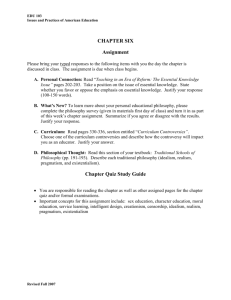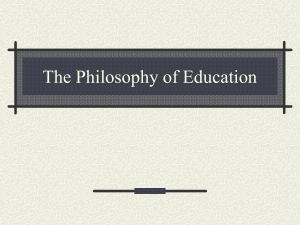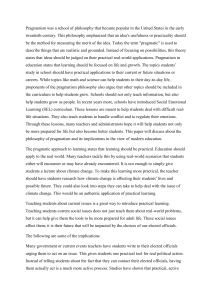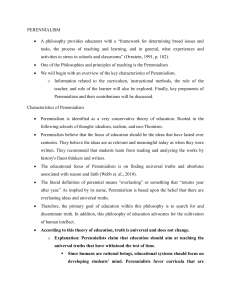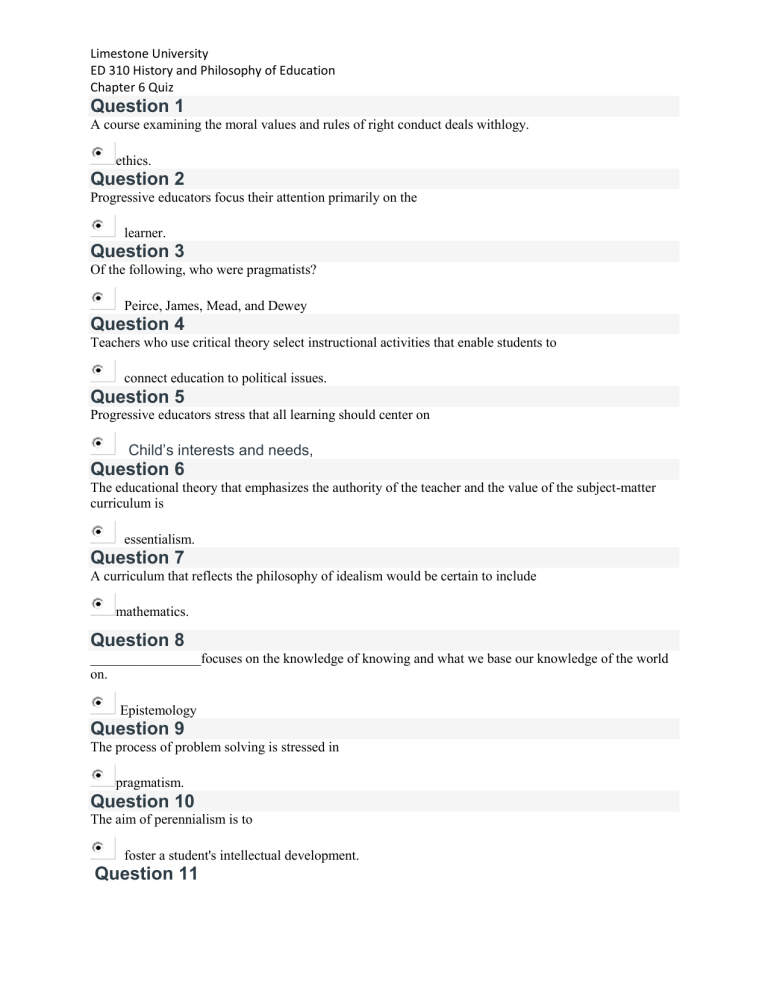
Limestone University ED 310 History and Philosophy of Education Chapter 6 Quiz Question 1 A course examining the moral values and rules of right conduct deals withlogy. ethics. Question 2 Progressive educators focus their attention primarily on the learner. Question 3 Of the following, who were pragmatists? Peirce, James, Mead, and Dewey Question 4 Teachers who use critical theory select instructional activities that enable students to connect education to political issues. Question 5 Progressive educators stress that all learning should center on Child’s interests and needs, Question 6 The educational theory that emphasizes the authority of the teacher and the value of the subject-matter curriculum is essentialism. Question 7 A curriculum that reflects the philosophy of idealism would be certain to include mathematics. Question 8 ________________focuses on the knowledge of knowing and what we base our knowledge of the world on. Epistemology Question 9 The process of problem solving is stressed in pragmatism. Question 10 The aim of perennialism is to foster a student's intellectual development. Question 11 Limestone University ED 310 History and Philosophy of Education Chapter 6 Quiz Postmodernist critics who attack the perennialist notions of education, such as the “Great Books” approach, do so on the grounds that perennialist approaches to education are restricted to unchanging knowledge from certain times and contexts only. Question 12 Which of the following groups of terms best describes the philosophy of idealism? spirituality, intellect, absolutes Question 13 Who developed the concept of realism, which asserts that reality is outside of our minds? Aristotle Question 14 Critical theory contends that schools control those who lack power. Question 15 Perennialists maintain that the effect of cultural relativism is a lack of standards for right and wrong. Question 16 Which educational theory views education as part of a larger effort to reform American society and politics? progressivism Question 17 Karen sees the world and everything in it as a laboratory for learning. She believes her students learn best when she poses problems they have to solve by interacting with a real-world setting. Which of the following views is closest to Karen's beliefs? pragmatism Question 18 Pragmatists such as Dewey see the school as a local community of _______________ connected to the larger society. learners and teachers Question 19 For the existentialist educator, values are freely chosen. Question 20 The philosophy of realism would suggest Limestone University ED 310 History and Philosophy of Education Chapter 6 Quiz competency testing for both teachers and students. Question 21 Lisa, who teaches literature, almost never uses contemporary fiction in her class. Instead, she emphasizes classics. She believes that because these works have stood the test of time, they help teach important ideas vital to anyone living in any era. Which of the following is most closely related to Lisa's beliefs? perennialism Question 22 The philosophy that would support a subject-matter curriculum emphasizing the great and enduring ideas is idealism.
